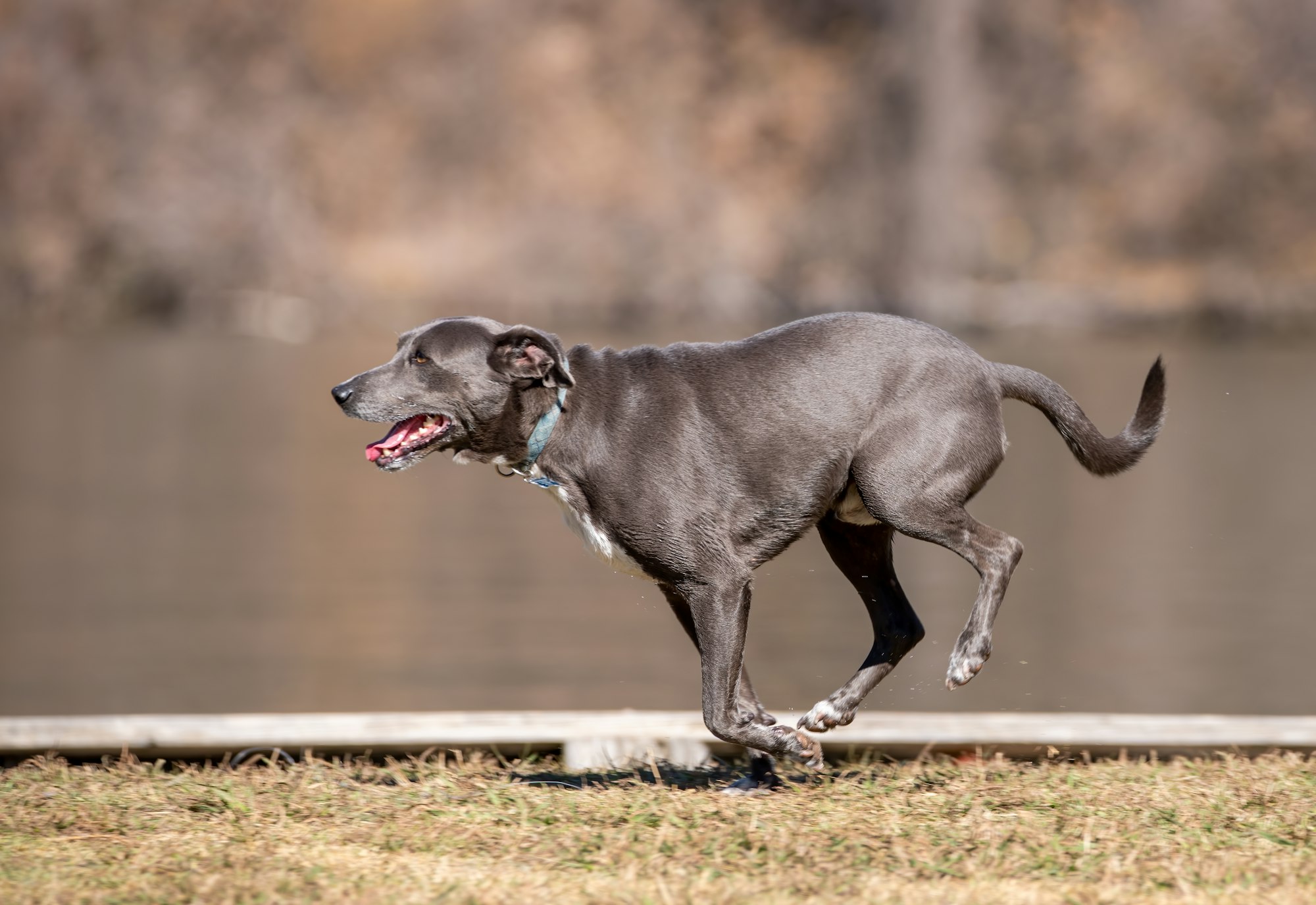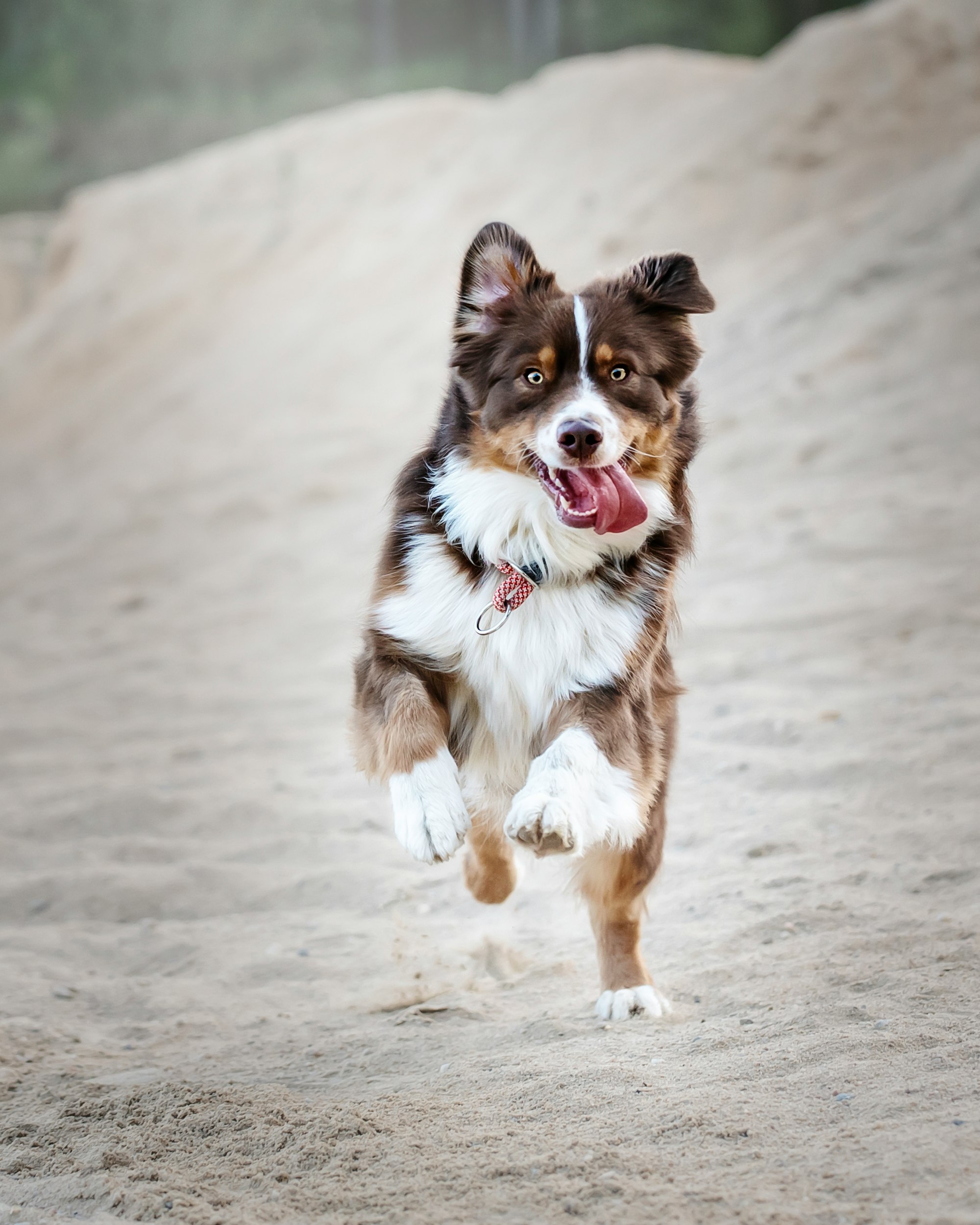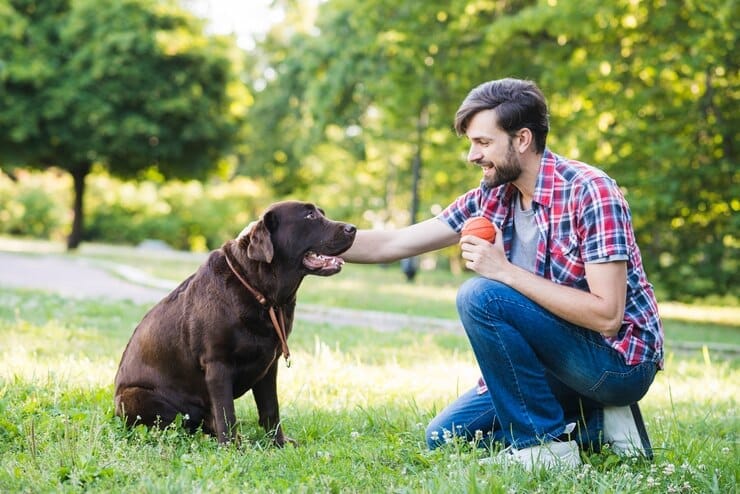Dogs are wonderful, loyal companions. But sometimes, they can be frustratingly independent—especially when they run away from home. Why do dogs do this?
There are a few possible reasons. Maybe your dog is feeling frustrated, anxious, or even afraid. Or, it could be that your dog's sexual drive is kicking in, and they are simply following instinct.
Whatever the reason, there are ways to prevent your dog from running away. For example, you can use a GPS dog collar to track your dog if they get away. And by understanding your dog's behavior, you can help reduce the chances of your dog wanting to run in the first place.

Why is your dog running away?
There are several reasons why your dog may be running away from home. They include:
Frustration
Dogs often run away from home because they feel frustrated. Dogs are social creatures that need companionship, so they can feel lonely and anxious when left alone for long periods. This can lead to destructive behaviors like chewing, digging, barking, and howling. If you think your dog is feeling frustrated, there are some things you can do to help them feel more comfortable at home.
First, ensure your dog has plenty of puzzle toys and activities to keep them occupied. This will help them stay mentally stimulated and prevent boredom. Second, provide them with a comfy place to rest and relax, such as a dog bed or crate. And lastly, make sure you spend quality time with your dog every day.
Take them for walks, play games together, and give them lots of love and attention. By meeting their needs for companionship and stimulation, you can help reduce the likelihood of your dog running away from home.
Separation anxiety
Six percent of all dogs are known to have separation anxiety. Separation anxiety occurs when a dog becomes anxious or stressed when separated from its guardians.
Dogs with separation anxiety may exhibit various behaviors, including barking, howling, whining, pacing, destruction, and elimination (urinating or defecating indoors). Some dogs may also try to escape by digging holes under fences or climbing over them.
Genetic and environmental factors cause separation anxiety, but the exact cause is unknown. Dogs who have experienced traumatic events, such as being abandoned or rehomed, are more at risk for developing separation anxiety.
There are several ways to treat separation anxiety in dogs, and the most important thing is to see a vet for professional advice. If you think your dog may suffer separation anxiety, please don't hesitate to seek help.
Fear
Some dogs may get scared and run away when left home alone. Loud noises, unfamiliar environments, and separation from their guardians can all cause fear.
Some dogs are more prone to fear than others, and it's important to socialize puppies from a young age so they learn to cope with new situations and people. If you have a fearful adult dog, there are still things you can do to help them feel more comfortable.
Desensitization and counter-conditioning are two behavioral techniques that can help dogs overcome their fears. The desensitization process involves slowly exposing your dog to what it fears (in a controlled environment) until it no longer reacts negatively. Counter-conditioning is when you pair the thing your dog is afraid of with something they enjoy, like treats or toys. Over time, your dog will start associating the thing they're afraid of with something positive instead of negative.
Medication options can also help dogs with severe fear or anxiety. If you're concerned about your dog's fearfulness, talk to your veterinarian about the available options.

Sex drive
Most people are surprised to learn that dogs run away from home to find a mate. Studies have shown that up to 60% of lost dogs seek a sexual partner.
Animals like dogs are instinctual creatures that have a strong desire to reproduce. This natural urge can be difficult for even the most well-trained dog to resist. And when you factor in the excitement of being outdoors and the sheer number of potential mates, it's no wonder many dogs end up running away from home in search of a little love.
You can do a few things to help your dog resist the urge to run off in search of a mate. The most obvious solution is to have your dog spayed or neutered. This will not only help reduce your dog's sex drive but also make them less likely to mark their territory (another common behavior associated with wanting to find a mate).
If you don't want to have your dog spayed or neutered, another option is to keep them on a leash when they're outdoors. This will help prevent them from running off if they see another animal to which they're attracted. You can also use a GPS collar to track their whereabouts if they do happen to get away.
Ultimately, it's important to remember that running away searching for a mate is an instinct for dogs. While there are things you can do to help prevent it, there's always a chance your dog will still take off if they get the opportunity. The best advice you can follow is to prepare and expect the best.
If you're serious about wanting to prevent your dog from running away, then it is crucial that you know this.
It can be heartbreaking when your dog runs away from home. You may feel like you have failed as a pet owner, but it is essential to remember that dogs are natural explorers. Their instinct is to roam, and sometimes this can get the better of them.
You can do several things to prevent your dog from running away. The most important thing is to provide them with a safe and secure home environment. This means having a fence that is high enough and strong enough to deter your dog from escaping. Keep your yard free of any hazards that could tempt your dog to run away, such as food scraps or garbage.
Keep your dog on a leash if you live in a busy area. This will prevent them from getting loose and running off after someone or something. If your dog escapes, a GPS collar can help you keep track of him.
You can also do behavioral things to help prevent your dog from running away. Training them in obedience commands such as “sit,” “stay,” and “come” will help them to listen to you and stay put when they are supposed to. It is also important that your dog be socialized so that it feels comfortable around people and other animals. This will reduce the likelihood of them feeling scared or threatened and bolting off.
Taking some simple precautions can help keep your dog safe at home and reduce the risk of them running away.

Dog training can stop your dog from running away.
Dog training is a great way to prevent your dog from running away. By teaching your dog obedience commands, you can give them the skills to stay close to you and not wander off. You can also work on recalling commands so that if your dog gets away from you, it will return when called. Leash training is another crucial part of preventing your dog from running away—getting them used to walking on a leash will make them less likely to try and bolt when they are out with you.
If your dog is already displaying tendencies to run away, there are some things you can do to change its behavior. For example, if your dog tends to pull on the leash when you are walking them, start using a no-pull harness or gentle leader instead. Making it more difficult for someone to pull away from you gives you better control of them and protects them while they are outside.
You can also try using a toy or treat as motivation – every time your dog walks calmly by your side, give them a small treat or play with their favorite toy. This will show them that good things happen when they stay close to you and will help discourage them from running away.
Remember, it is important to be consistent with your training – if you only work on it occasionally, your dog is unlikely to see any results. Set aside time each day to work on obedience commands and leash training with your dog, and soon you will see an improvement in their behavior.

Should you punish your dog for running away?
There is debate over whether you should punish your dog for running away. Some people believe punishment will only worsen the problem, while others feel it is an effective way to train your dog not to run away.
If you plan to punish your dog for running away, it is imperative to do so in a way that will not scare him or make him want to run away even more. For example, scolding or hitting them is likely to do more harm than good. Instead, try using a positive reinforcement approach, rewarding your dog when they stay close to you and ignoring them when they run away.
Ultimately, it's up to you to decide if you want to discipline your dog to escape. As with any punishment, it's best to be calm and consistent, so your dog understands the reason for his punishment.

Conclusion
There could be several reasons why your dog is running away from home. It could be because they're bored, not getting enough exercise, or not feeling like they belong in your home. Regardless, it's essential to try and figure out why your dog is running away and address the issue head-on. This way, you can keep your dog happy and prevent them from running away again in the future.
For more helpful articles about pet-parenting tips, check out the Off Leash blog at TryFi.com.
Want to know more about TryFi.com? The Fi Dog Collar is a GPS tracking collar that not only keeps track of your dog’s location, activity levels, and sleep patterns, but it also alerts you if your dog escapes your backyard. This is the fastest way to find your dog after an escape. Try the Fi Dog Collar today!

